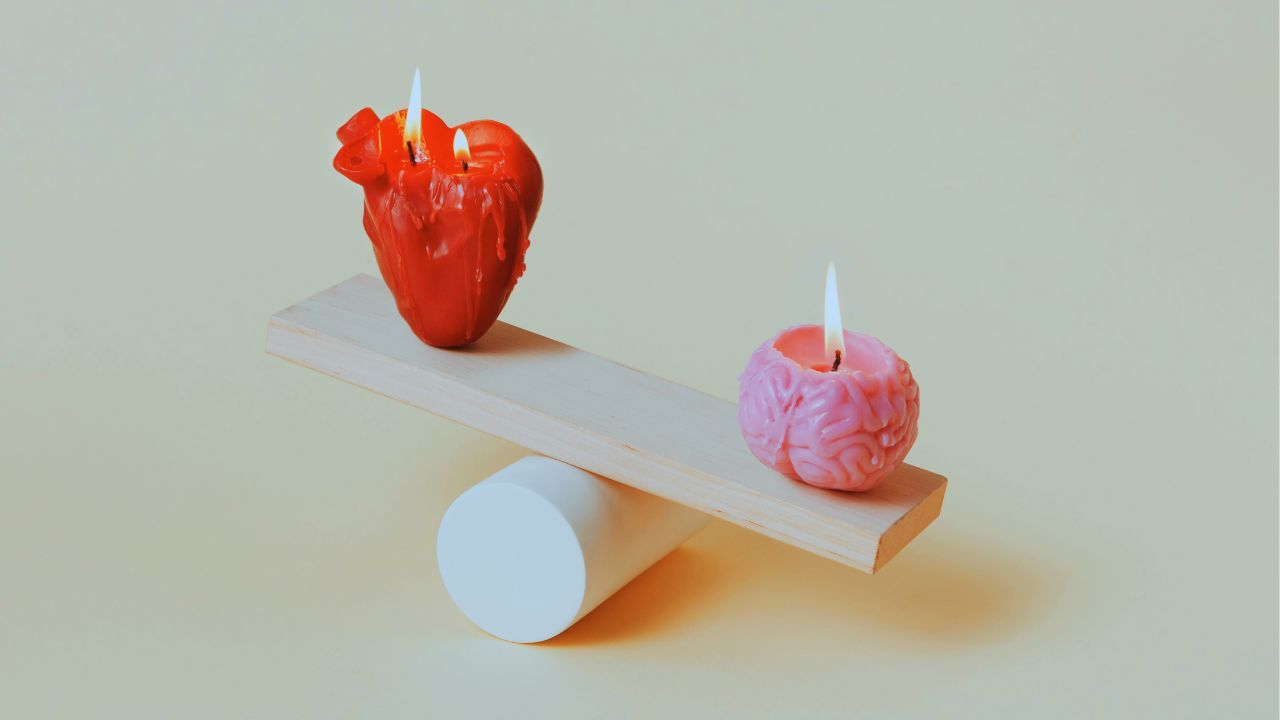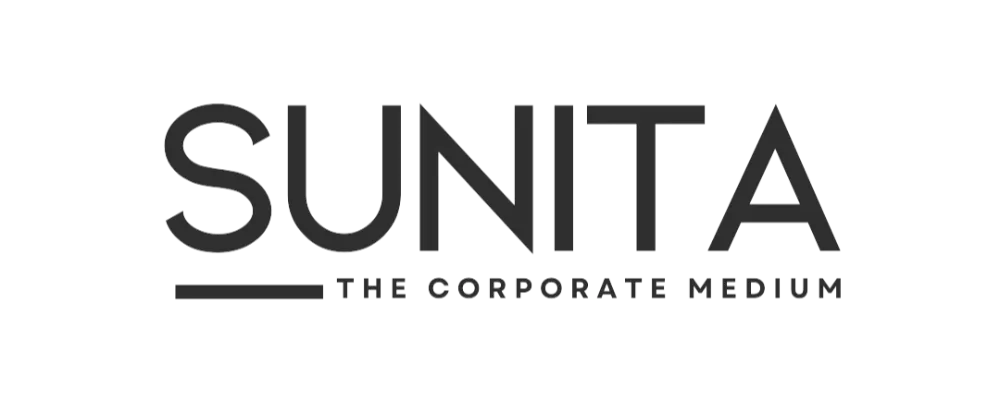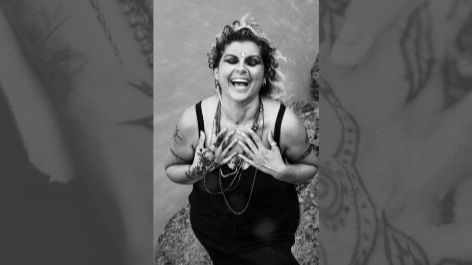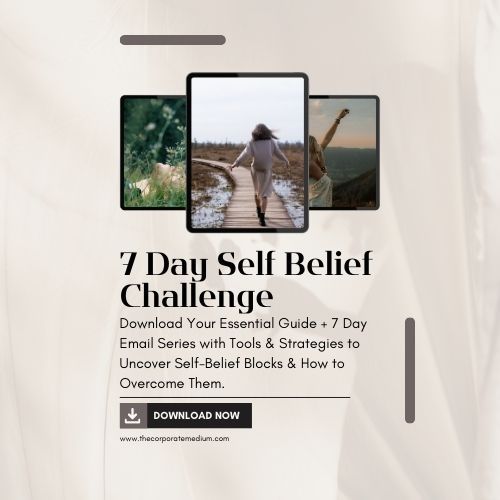#4 Mind vs Heart Intelligence: The Journey to Inner Balance

Mind vs Heart Intelligence: The Journey to Inner Balance
The mind is considered one of the most powerful human organs, but I believe the heart is just as powerful. Both the mind and the heart are integral to how we operate in the world. Learning how each of them functions, how they communicate, and how they affect our decision-making is a journey in itself. Mastering this balance between mind and heart takes patience, self-awareness, and a lot of inner growth.
As a Medium and Mindset Coach, I’ve seen firsthand how these two forces—mind and heart—can either work together in harmony or create internal conflict. And this internal struggle often prevents us from reaching our highest potential. It’s only when we learn to align them both that true transformation begins.
Let’s unpack the issues affecting the balance.
How often have you met someone on a journey of self-discovery and noticed that their perception of where they think they are versus where they actually are, are two very different places?
In my work, I often come across individuals who are fully aware of their limiting beliefs and patterns. They know that they’re stuck and want to break free and heal from their challenges. They acknowledge the need for change and are ready to take that first step BUT they don’t see the internal battle between their head and heart is taking place.
You see, the desire to be, do and have something vs the expectations placed upon is, be it by others or learnt programming, collide within the head and heart more than we realise.
Wrapped up amongst all of this are values clashes. What does that mean? It means we are usually living in outdated values and belief systems that originated elsewhere. For example from our family of origin (i.e. what our parents told us to do), societal or cultural.
Layer these within each other and our heart’s desires become buried.
The Truth About Self-Awareness and Reality
Awareness is a crucial step to help us navigate mind and the heart. However, many people become stuck in the cycle of acknowledging the problem without taking the necessary action to solve it.
But here’s the thing: realising that you are stuck is only the beginning. In many cases, individuals stay trapped in this phase, where they acknowledge the problem but never move beyond it.
Why? Because they are stuck in the illusion of what they want versus what they are willing to do to achieve it.
This is where the heart comes in, I know it is said the heart holds our ‘emotions’ whether it does or doesn’t is irrelevant. The thing that adds to this internal conflict is fear of the unknown, fear of the what if I became unstuck to become who I wanted to be? This fear is a reality for many.
The Role of the Brain in Keeping Us Stuck
Our mind is an incredibly powerful tool, and it’s designed to protect us. The logic, reasoning, and survival instincts ingrained in the mind will often cloud our intuition, leading us to stay within our comfort zones. Self-preservation kicks in when we step out of our comfort zones, and this is where the brain takes control, especially when we are trying to follow our heart not our head.
The hypothalamus and amygdala are central in triggering the fight-or-flight response, where the body prepares to either fight a threat or flee from it. This response is part of the brain's evolutionary survival mechanism, designed to keep us safe from immediate danger.
During our spiritual development and personal growth, this part of the brain is activated and feels threatened. So, the next time you are struggling, overwhelmed and in tears thinking you are going backwards remember this: growth only happens outside of your comfort zone.
When intuition is clouded by the logic of the mind, it becomes much harder to listen to what our heart truly desires. We talk ourselves out of taking that first step. In essence, the mind is trying to protect us from discomfort, but what it often fails to realise is that growth only happens outside of comfort. Trying to listen to your intuition becomes harder, and self-doubt creeps in.
This internal battle between the heart and mind creates confusion and stagnation. We know something needs to change, but we don’t always know how or why we resist. That’s the challenge many face on the road to transformation.
This internal battle between the heart and mind creates confusion and stagnation. We know something needs to change, but we don’t always know how or why we resist. That’s the challenge many face on the road to transformation
Because the brain jumps in to protect our very being, regardless of whether we like it, this survival instinct contributes to our stuck state.
Why We Stay Stuck
So, what happens when you don’t even see your repeated patterns?
This happens because change is hard. We’ve been conditioned to repeat behaviours that keep us “safe.” But safety doesn’t always equate to growth. Growth often requires us to step into the unknown and face our fears.
When we aren’t listening to ourselves, we stay in patterns of self-sabotage. In these instances, it’s often the people closest to us who notice the changes we need to make before we do. Family and friends might be telling you things you don’t want to hear, but these truths can be the wake-up call you need.
Creating safety during change and growth is crucial. Remember your brain is in protection mode and will not give in easily. Many of us see this as resistance but the truth is, parts of you probably just need to be reassured and given the attention it needs to recognise the fears and objections your brain is raising.
None of it needs to make sense either! Imagine the ramblings of a toddler having a tantrum – this is what the fear brain can feel like. Trust is connected to safety and cultivating the practice of trust will help you to navigate through dangerous waters.
3 Steps to Balance the Heart & Mind
To help cultivate internal trust and safety when going through change and growth, it is essential to engage with heart intelligence to counterbalance the survival brain (the reptilian brain and limbic system). The survival brain often reacts with fear, doubt, and a need to control, making it hard to embrace change.
When you engage the heart's wisdom, you can create a sense of safety that supports personal growth, resilience, and transformation.
Here are three practices to cultivate internal trust and safety, focusing on heart intelligence:
- Practice Heart-Centred Breathing
Heart-centred breathing is a powerful technique that helps regulate your nervous system and shift your focus from fear-based thoughts to calm, centred energy. By focusing on the heart, you’re activating your parasympathetic nervous system, which promotes relaxation and safety in the body.
How to do it:
- Sit in a comfortable position and place your hand over your heart.
- Take a deep breath, inhaling slowly through your nose and exhaling gently through your mouth.
- As you breathe, focus your attention on the sensation of the breath moving in and out of your chest.
- Visualize each inhale filling your heart with warmth and safety, and each exhale releasing tension and fear.
This practice creates a direct connection between the mind and heart, helping to dissolve the survival brain's fear responses and bringing you back into a state of calm, trust, and emotional balance. As with any new habit, you will need consistent practice, to train your brain to respond to challenges from a place of inner peace and trust, rather than fear.
- Cultivating Self-Compassion and Acceptance
The survival brain thrives on self-criticism and judgment, often making growth feel unsafe. Self-compassion activates the heart’s wisdom, allowing you to be gentle with yourself during the inevitable discomfort of change. When you practice self-compassion, you reassure yourself that you are capable, worthy, and safe to move forward, no matter the challenge.
How to do it:
- When you notice fear or resistance arising, pause and place your hand over your heart again.
- Speak gently to yourself, offering words of kindness like, "I am doing the best I can, and it’s okay to feel uncertain."
- Remind yourself that change is hard for everyone, and it’s okay to have setbacks. Embrace yourself with love, knowing that growth takes time.
By soothing your nervous system with kindness, you neutralize the fear-based impulses of the survival brain and create an internal sense of safety. Self-compassion becomes a grounding force, helping you trust that you can handle whatever comes your way.
Imagine it to be an internal hug.
- Connect with Your Heart’s Intuition Through Reflection
Your heart is a powerful source of intuitive guidance that can help you navigate through change. When the survival brain takes over, it often drowns out the quiet voice of your heart. To foster trust in yourself and your intuition, dedicate time each day to reflect and listen to your heart's wisdom.
How to do it:
- Set aside a few minutes each day to sit quietly and reflect on your current challenges or growth opportunities.
- Ask yourself, "What does my heart need to feel safe right now?" or "What does my intuition say about this situation?"
- Pay attention to the sensations or emotions that arise in your chest area—this is your heart communicating with you.
You might notice subtle insights or emotional shifts that offer clarity and reassurance. By actively engaging with your heart’s intelligence, you build trust in your ability to navigate uncertainty and cultivate emotional resilience during times of growth.
Remember: The more you listen, the more you’ll trust your inner wisdom, to allow you to move forward with confidence.
My Final Thoughts: Inner Work as the Foundation for Transformation
Mastering the balance between mind and heart intelligence is the foundation of real transformation. It is a continual process of self-discovery and growth. The willingness to look at your beliefs and challenge them requires courage. And the decision to choose a different reality, one that is in alignment with your highest self requires strength.
The survival brain’s instinctual need for safety and control can be a major roadblock during times of growth and change. However, by engaging your heart intelligence, you can override fear-based responses and create a safe space within yourself to embrace transformation.
By practicing heart-centred breathing, self-compassion, and listening to your intuition, you can tap into a deeper source of inner trust, resilience, and emotional clarity. This will not only help you navigate change but also empower you to move forward with a sense of peace and certainty, no matter what challenges arise. And in life, there will always be challenges, how you react is a choice.
Remember, the journey starts when you decide to let go of old beliefs and embrace a new vision for your life. Identifying allies and resources is also key and by cultivating heart intelligence practices, you will realise, your heart is your greatest ally in the journey of growth and change.
I hope you enjoyed this blog, feel free to leave your comments or questions below.
Sunita




